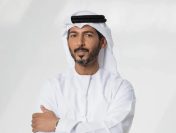During and after the Arab Spring, we took a stand – people first – on how we’re going to run our business during this tumultuous time. The lessons we learned prompted me to look deeper into the link between culture and economic performance: What makes a business’s investments in culture so valuable during times of massive cultural and economic change – when the expected response is to cut ‘soft programs’ to the quick and focus strictly on client deliverables.
I had to search a long time to even find discussions about the topic – telling, isn’t it? The best is a book that’s more than 20 years old, ‘Corporate Culture and Performance’ by John P. Kotter and James Heskett. It pitted 12 companies that had “performance-enhancing cultures” against 20 that didn’t. It’s based on research done by consultancy firm Kotter International in partnership with the Harvard Business School. It concludes: “strong corporate cultures that facilitate adaptation to a changing world are associated with strong financial results”.
Today, I’d elaborate on this with simple syllogism: strong corporate cultures that put a company’s people at the forefront not only facilitate their adaptation to a changing world, but they will also mold them into agents of change. It’s our job, through transformative recruitment, leadership and recognition programs – to harness our employees’ collective skills, interests and to promote a common purpose that serves their needs and ours.
This is especially true in this age of velocity, programmatic buying and automated data mining and analytics where we’re struggling to re-balance human and artificial intelligence – but not one at the expense of the other. We can never forget we’re an industry centered on people from the inside out – and that includes our own people, not just consumers.
It is our people who understand the pace and purpose of people, not consumers. It is our people who know how to grow brand experiences amidst new technologies, account shifts, and massive restructuring at client organizations as well as our own agencies.
Yes, ‘people first’ is how we weathered several storms in the MENA region, taking care of our people first in turbulent and unstable markets. The business followed – and exactly when it should have.
Now that the dust has settled and we are moving forward, we’re pouring our investments into bridging our human capital with tech advancements and partnerships. Nowhere is this more evident than in our global rollout of the Twitter Flight School and Programmatic Certification learning and development programs. As we push on automation and big data to create simplicity, integration and consistency in our media product, we need people to draw on this technology and data for insights, creativity and big ideas. It is people who will architect connected human experiences worth living.
I challenge agencies to embrace, rather than shy away or compete with giants that have mastered the art of understanding people and transforming with them. This philosophy has culminated in several global partnerships with Facebook, Twitter and China’s Tencent.
Even though people are connected through an ever more complex and elaborate web of both virtual and physical tools, they still want to share human experiences. This applies to an agency’s internal organizational structures as much as it does to its external stakeholders. Whether the latter are clients or consumers, they are people first. Take care of your people, and they will do the same for you and everyone else.
This article was published in The Arabian Marketer February print issue.
To get your own copy, please email to marketing@arabianmarketer.ae





